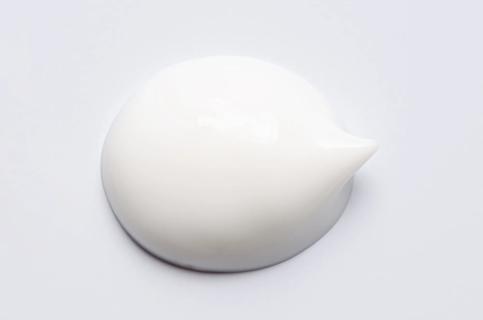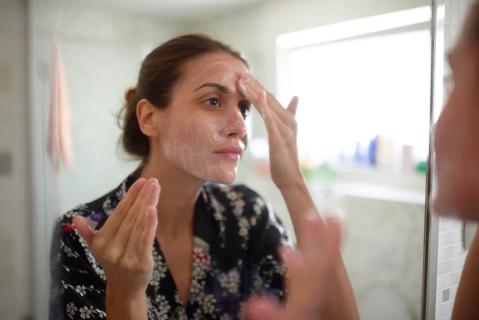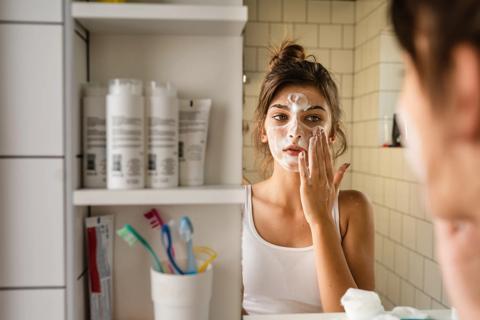Using Olive Oil for Skin Care: Benefits, Risks, and How-To Guide
Olive oil, a kitchen essential, has a surprising second life as a skin care product. Dermatologist Dr. Amy Kassouf explains how this natural oil can moisturize dry skin and aid wound healing, but also highlights potential downsides. Is olive oil right for your skin?
What are the Benefits of Applying Olive Oil to Skin?
Olive oil isn't just for cooking. Its unique components offer several potential skin benefits:
- Deep Moisturization: Olive oil seals in moisture, combating dryness, especially during harsh winter months and can relieve chapped lips.
- Faster Wound Healing: Acts as a protective barrier, promoting faster healing due to its anti-inflammatory and collagen-boosting properties. The antimicrobial elements also help prevent infection in minor cuts.
- Anti-Aging Potential: Healthy fats and antioxidants may reduce wrinkles and improve skin elasticity. Polyphenols in olive oil stimulate collagen production, combating oxidative stress that contributes to aging.
- Gentle Makeup Removal: Olive oil gently dissolves oily makeup and skin pollutants, even waterproof mascara, but double-cleansing might be beneficial to remove excess oil.
Smart Tips for Using Olive Oil on Your Skin
Maximizing benefits while minimizing drawbacks is key. Here's how to introduce olive oil to your skincare routine:
- Apply to Damp Skin: Post-shower or bath application increases absorption. Pores are open and more receptive to the oil's moisturizing properties.
- Use Sparingly: A small amount is effective. Avoid over-application to prevent a greasy feel or stained clothes.
- Allow Absorption Time: Let the oil sink in before dressing or going to bed and give it a few minutes to absorb fully.
- Target Specific Areas: Begin with dry areas for moisturizing like elbows and feet.
Potential Risks of Putting Olive Oil on Skin
While natural, olive oil isn't without potential negatives:
- Acne: Might clog pores and cause breakouts, particularly for those with oily or acne-prone skin.
- Hyperpigmentation: Can worsen dark spots by increasing UV ray penetration.
- Sunburn: Olive oil lacks SPF and increases sunlight absorption, potentially leading to sunburn and skin damage.
Olive Oil vs. Other Natural Moisturizers
How does olive oil stack up against other all-natural moisturizers? Here's a quick comparison:
| Moisturizer | Benefits | Considerations |
|---|---|---|
| Olive Oil | Moisturizing, wound healing, anti-aging potential, makeup removal | Can cause acne, worsen hyperpigmentation, no SPF |
| Coconut Oil | Highly moisturizing, antimicrobial | Can clog pores for some, strong scent |
| Jojoba Oil | Mimics skin's natural oils, non-comedogenic, hypoallergenic | May not be moisturizing enough for very dry skin |
| Ceramides | Help retain moisture, protect skin barrier function. | Higher oil concentration may clog pores in acne-prone skin. |
 |
Is Olive Oil Right for Your Skin?
Olive oil can be a beneficial, natural moisturizer, especially for those with dry or sensitive skin. However, consider your skin type and potential risks before incorporating it into your routine. Perform a patch test, and discontinue use if you notice any irritation or breakouts.











